Having visited both the Nile in Egypt and the Yangtzee in China, I couldn’t wait to canoe down the Amazon and cross the world’s three largest rivers off my bucket list. I’ve been working on a series photographing endangered species in their natural habitats for the last few years and was thrilled to finally have the opportunity to photograph the elusive giant river otter. I spent eight days in the jungles of Ecuador tracking a family of otters and seeing countless incredible birds, caiman and monkeys along the way.
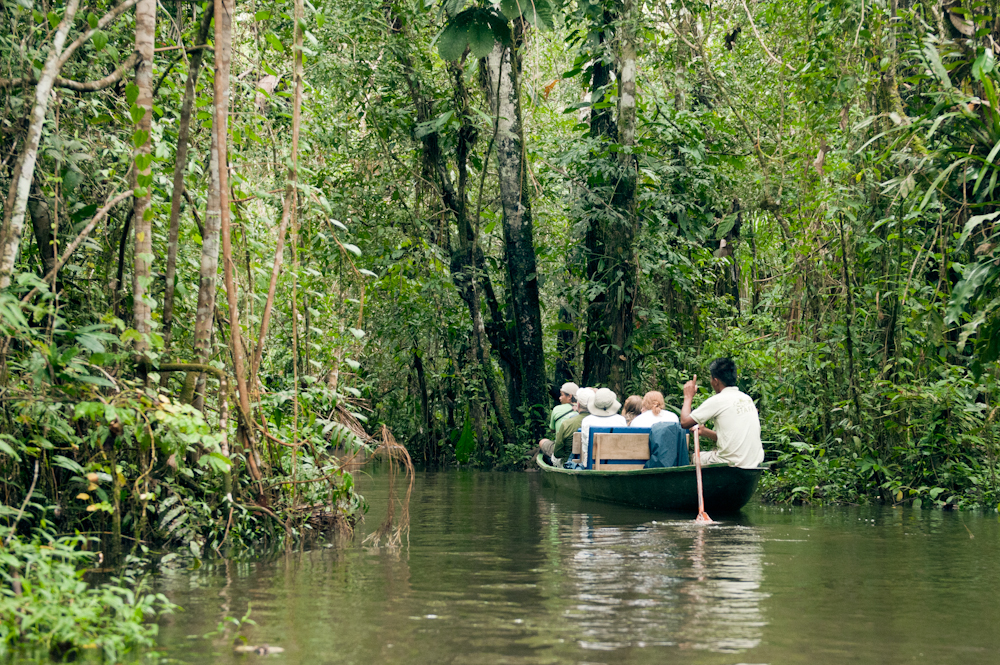
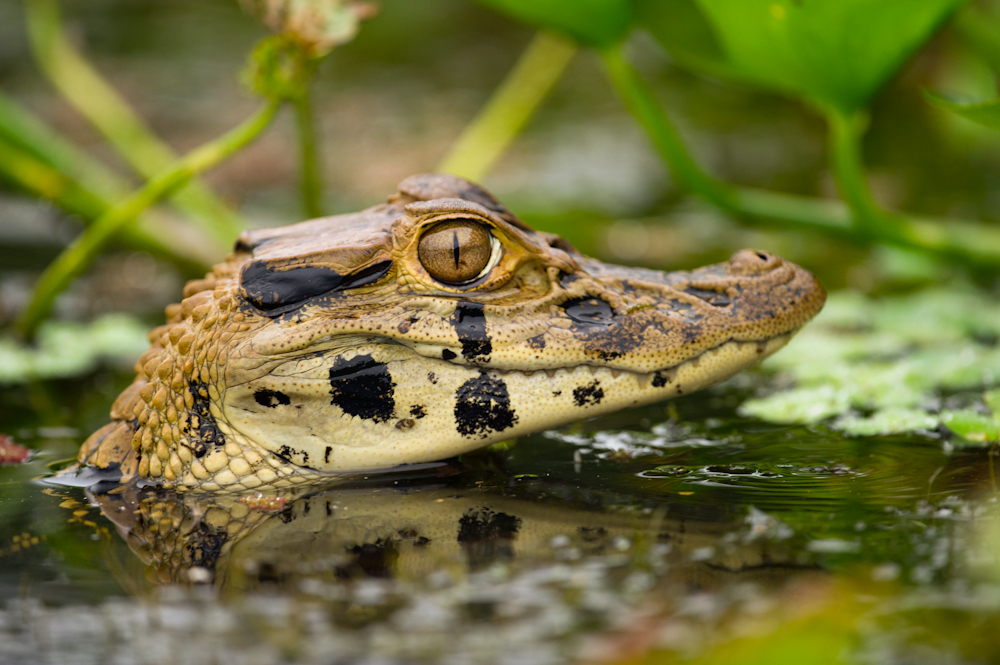
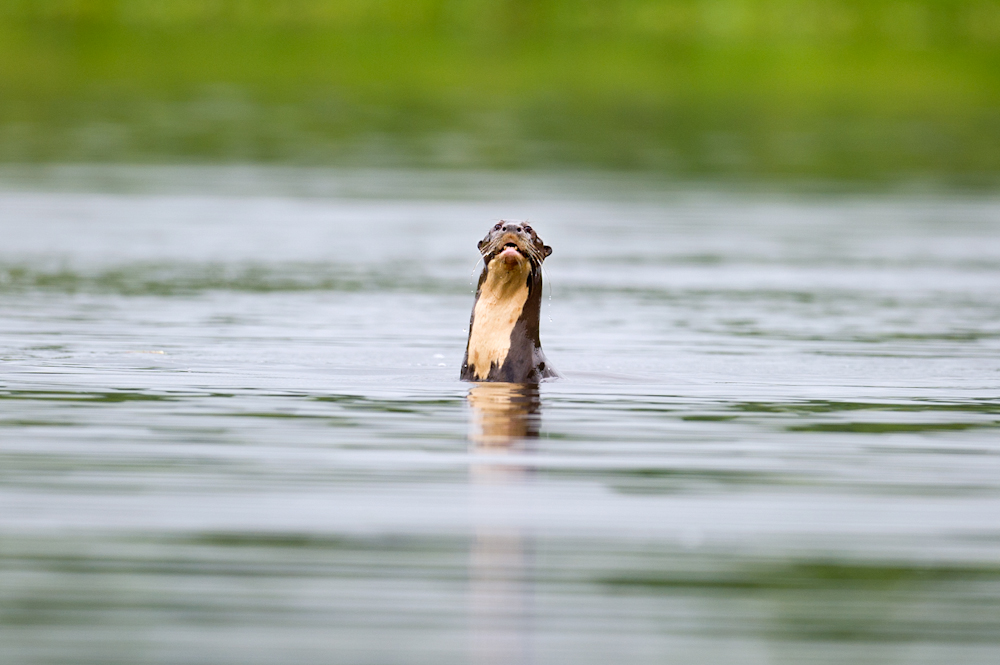
Many of the indigenous tribes in Yasuni National Park have sold their land to the oil companies, but the Kichwa Indians have taken a different path and opened an eco-lodge on their ancestral territory. Because of the untouched nature of the land, a family of river otters nest on the Anangucocha Lake that the lodge is on and as such the Napo Wildlife Center is one of the best places in Ecuador to spot these amazing otters. The lodge itself is also beautiful and was a wonderful retreat within the jungle. The lodge was opened in 2003 and all proceeds go back into the community to help protect both the ancient traditions of the local people and to preserve the delicate ecosystem of the Napo River.
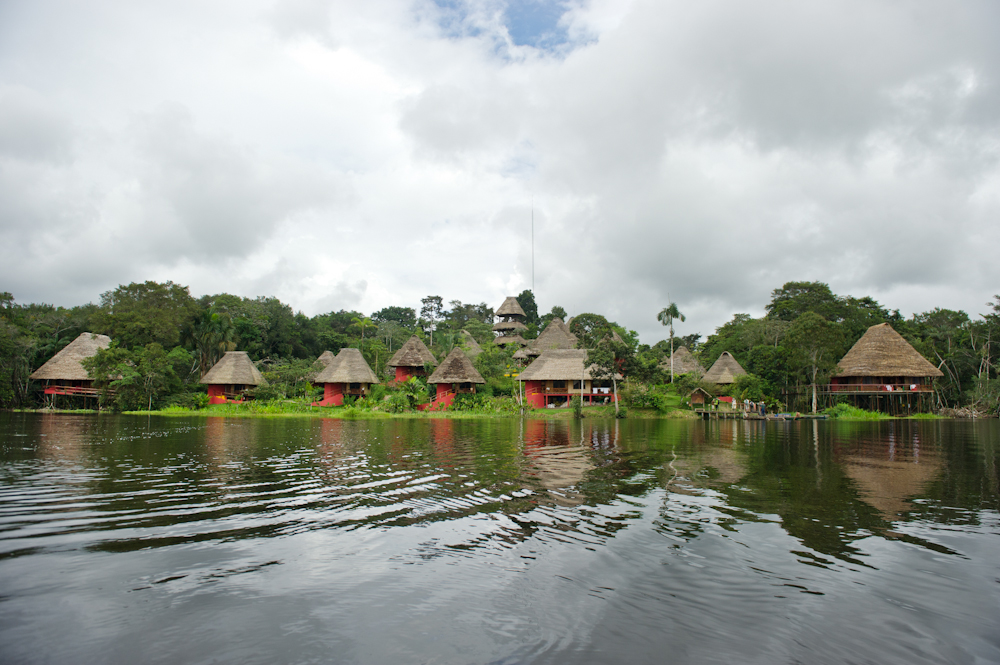
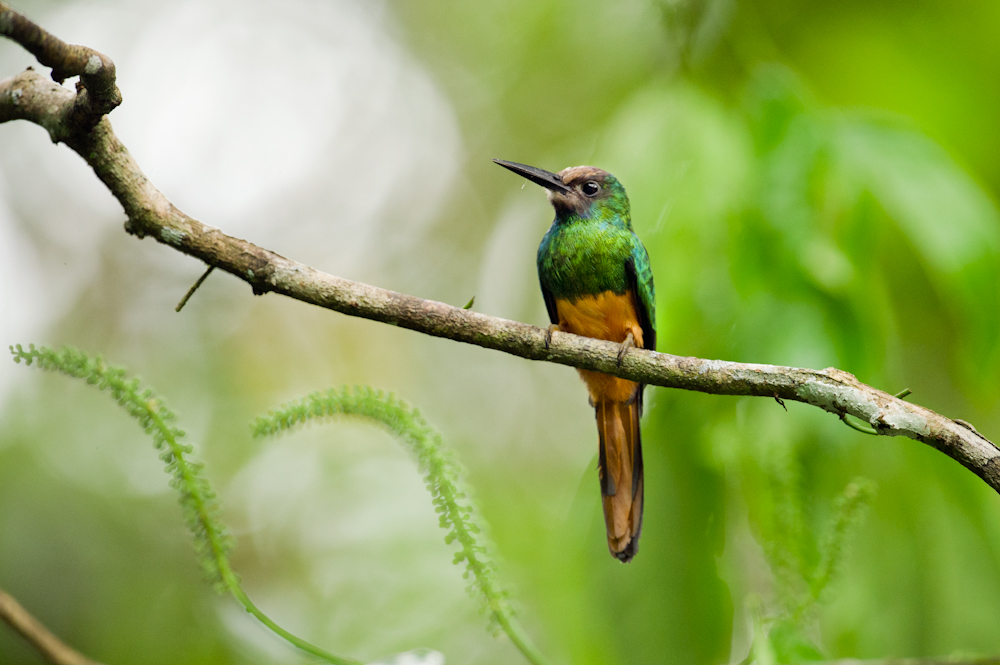
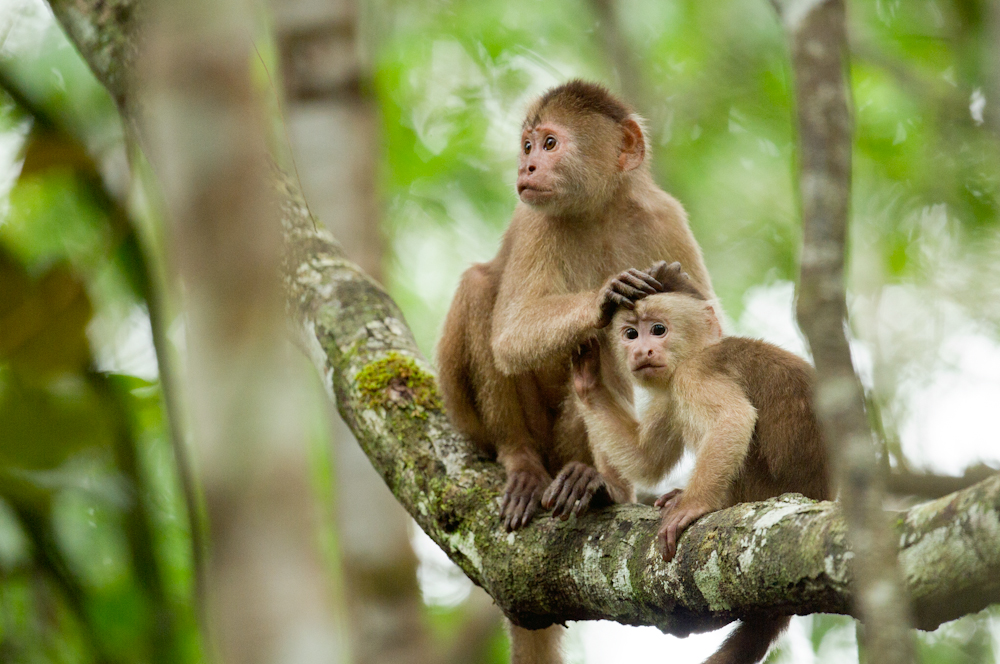
For many visitors to the Amazon the biodiversity of the birds is a main attraction. A visit to the Napo Wildlife Center will surely not disappoint. There are more species of birds than I could count and the center has long been declared by many birders as one of the top 10 birding sites in the world. The lodge has created a booklet with all the wildlife in the area, which you can purchase at the bar. Every night I would sit with my book and my guide and check off what I’d seen and try and match it up to my pictures. My focus was on the otters, so I didn’t do much birding, but without purposefully birding I still saw over 100 species of birds in my eight days there. If I had gone specifically for the bird watching that count would have probably tripled!
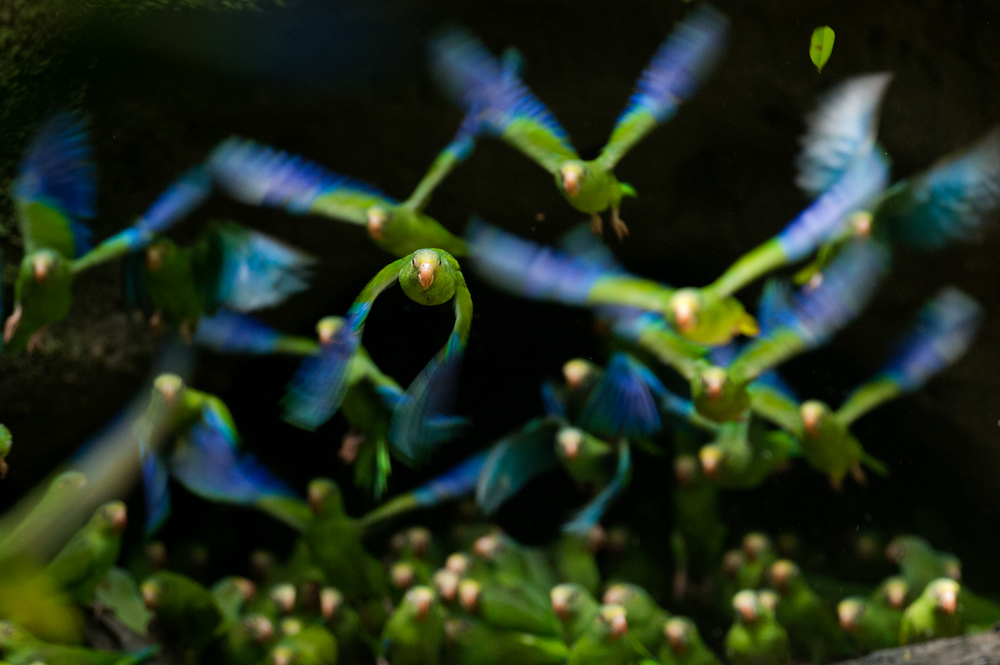
The one birding activity that I did not want to miss was a trip to the blinds set up by the Wildlife Center at two clay licks near the lodge. One of the licks was actually on a cliff side right on the Napo River and we watched it from a boat. We weren’t able to get too close and it was so foggy that I wasn’t much impressed by it, but the second clay lick, which was a real blind that had been set up in the rainforest, was one of the most spectacular scenes I have ever witnessed. The lick is a pleasant 20-minute walk into the rainforest. The Cobalt-winged Parakeets visit the blind every day without fail in the late morning, taking their time to slowly descend down from the canopy above. The parakeets eat the clay to help digest toxins from the berries they eat and therefore need to visit the licks everyday. Because there are many predators in the rainforest, most birds are hesitant to descend until they know the coast is clear. On our visit we spent almost two hours watching birds in the treetops high above us before they slowly moved down to the clay deposit below. Sometimes these birds will make it almost all the way down before hearing the call of an eagle or other bird of prey, or seeing a snake, getting spooked and beginning the process all over again.
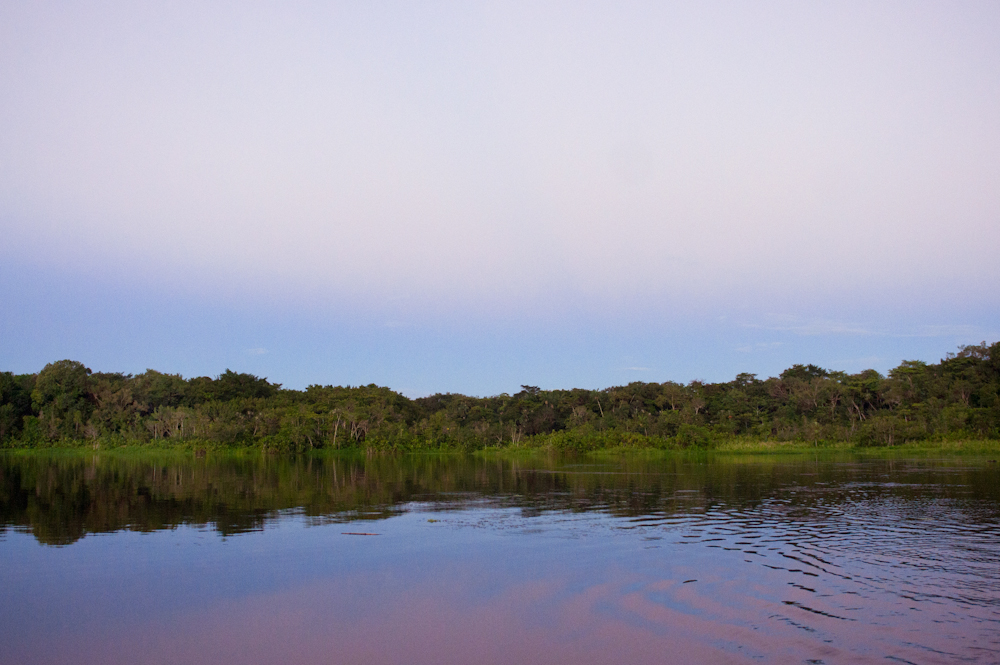
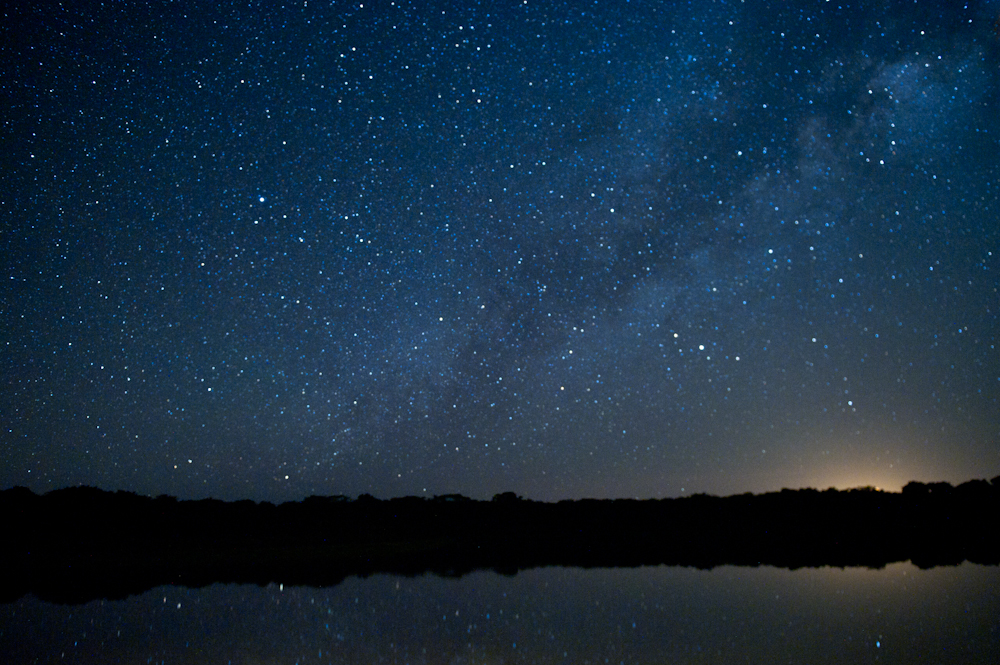
Stay
Napo Wildlife Center Eco Lodge
La Niña, El Oriente,
Ecuador 170135
1-866-750-0830
Helpful Hints
If you opt for bird watching at the blinds, I recommend bringing a long lens and a tripod for your camera. Ground level is quite a far distance from the licks and you’ll be glad you’re able to capture the birds’ beauty with a zoom lens!
Find more detailed information on the Yasuni National Park before your departure to Ecuador.
Rebecca Yale is a documentary and portrait photographer living in New York City who loves to travel the world photographing causes she is passionate about like conservation and child protection.
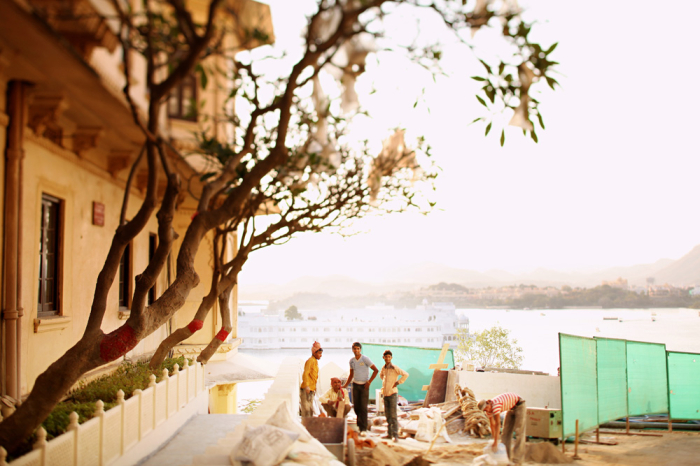
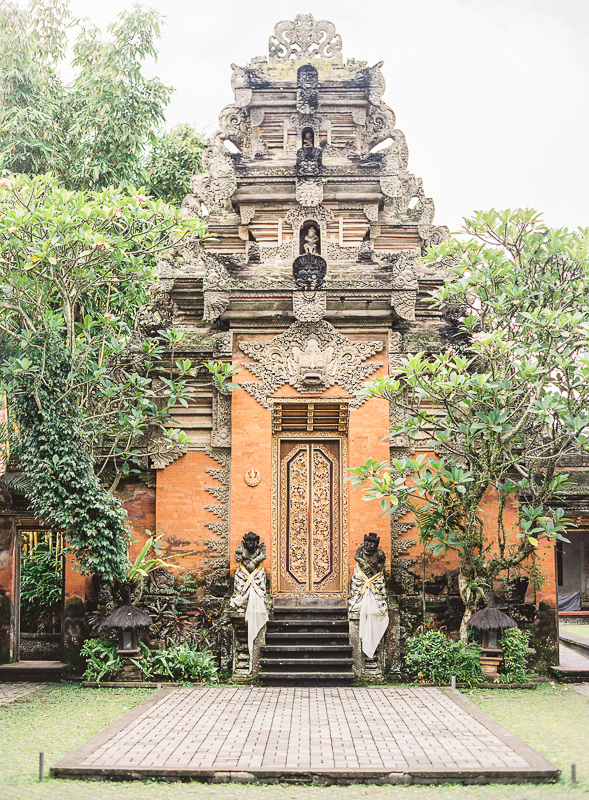
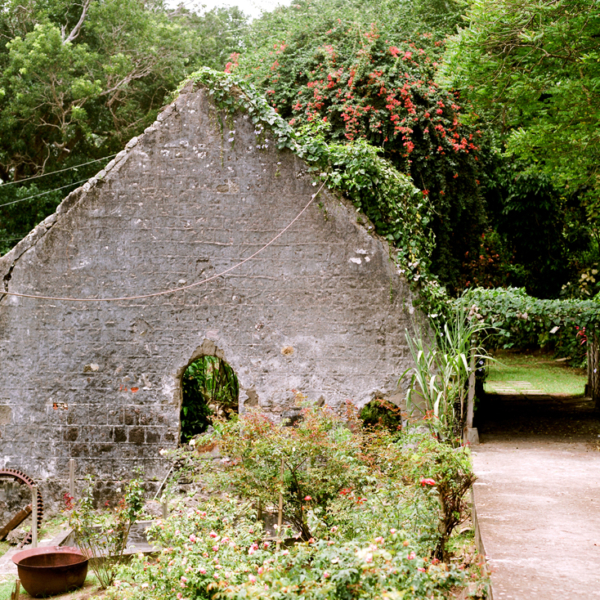

Comments…
An area very close to my heart and one I run an education project from every year – what a small world it is at times :-) Check out the link to my blog and see this location from a different perspective.
Comments are currently closed.